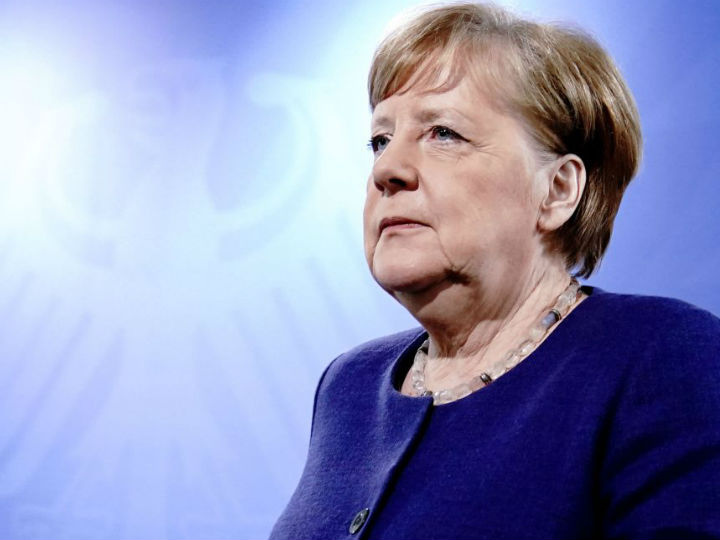by Nikolaus J. Kurmayer*
Angela Merkel, the eternal chancellor. Calm, collected, and generally unwilling to debase herself in the political arena. Sixteen years of calm rhetoric are coming to an end just as her conservatives face historic polling lows.
State of the nation or union addresses are en vogue these days. As we await Commission President Ursula von der Leyen’s State of the Union speech next week, the question is whether it will be as atypical as Merkel’s was on Tuesday (7 September), when she took off her gloves and entered the fray.
The 26 September election in Germany is the first where an incumbent chancellor is not up for re-election, and Merkel had somewhat awkwardly chosen to stay out of the election arena.
To begin with, Merkel did not publicly chime in on the intra-party talks on who could, or should, succeed her at the helm of the CDU.
She did not budge as her would-be successor Annegret Kramp-Karrenbauer’s grip on the Christian Democrat Union slipped following the Thuringia far-right debacle in 2020.
Nor did she offer support to Armin Laschet, the minister-president of North Rhine-Westphalia, or Markus Soder, the minister-president of Bavaria, as they got into their bruising quarrel this spring over who would try to become the next chancellor.
Merkel had stood silently on the sidelines, content to govern the world’s fourth largest economy and navigate the troubled waters of the COVID-19 pandemic.
That silence ended on Tuesday, however, as she used her state of the nation address to aggressively campaign on her party’s behalf.
Jeered by the opposition parties, applauded by her conservative colleagues, Merkel laid out why a coalition led by the social democrat Olaf Scholz would threaten German prosperity and stability.
She instead offered her party’s candidate, Laschet, as a safe pair of hands to protect her legacy.
Commentators were rightly stunned, as Merkel going on the offensive to that extent is extremely rare. Laschet was clearly jubilant, grinning in parliament while Merkel sang his praises.
One thing is certain: Merkel has entered the ring and she stays there for the coming weeks.
And she’s a heavyweight amongst heavyweights: Merkel is still by far the most popular politician in Germany and many voters consider her the face of politics, having grown up with her at the helm.
When Merkel speaks, Germany listens.
Still, it might just be too late to turn the tide of an election that appears to have slipped out of the conservative union’s grasp. Mail-in voting may have locked in the results already.
Driven by the emergence of a fourth wave of COVID infections and the prominence of the Delta variant in Germany, mail-in voting figures are expected to be at an all-time high.
Michael Kellner, the campaign manager of the Green party, projected that about 40 to 50% of total votes would be mail-in, compared to 28% of people who voted by mail in 2017.
Mail-in voting in Germany is possible six weeks ahead of an election day.
The question is whether Merkel’s intervention, less than three weeks before in-person voting starts, will be enough, or if it is too little, too late?
*first published in: www.euractiv.com




 By: N. Peter Kramer
By: N. Peter Kramer

